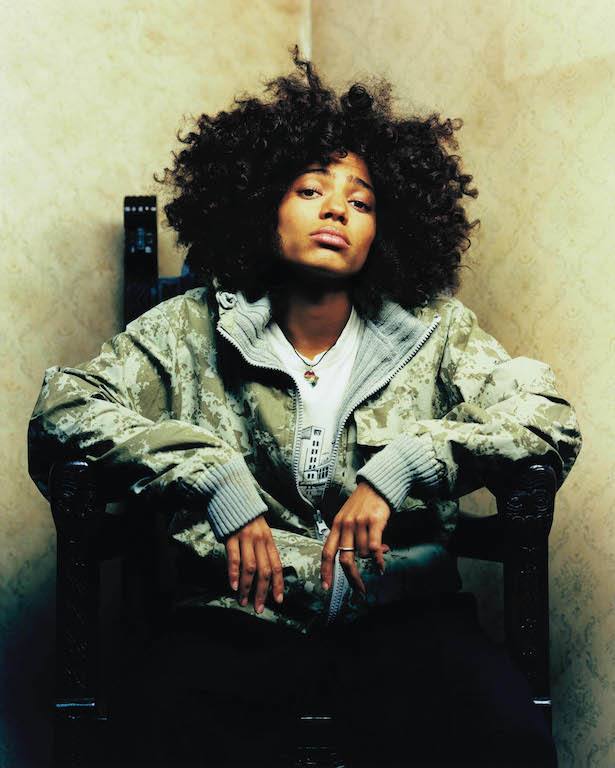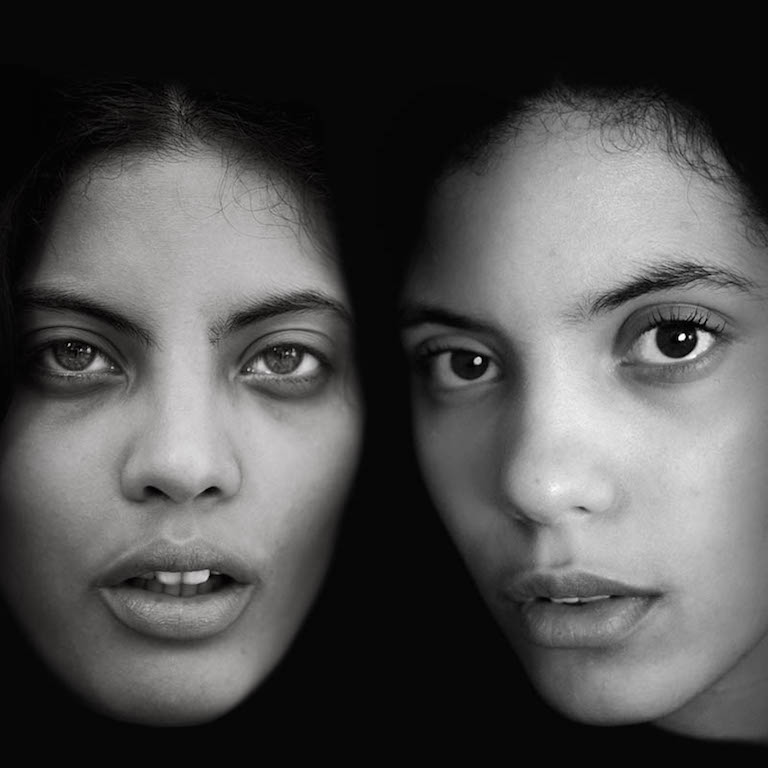Back to their roots: Twins Lisa-Kaindé and Naomi Diaz
MY FAIRY TALES by Nneka
(Bushqueen Music)
It seemed inevitable that Nigerian-German singer Nneka would make a roots trip album. The 34-year-old accompanied Damian Marley and Nas on their 2010 Distant Relatives tour, a project that updated a well-trodden route of Caribbean to African awakening with a punchy, hip-hop-moulded attitude. This enthusiasm has been manifested within Nneka and so My Fairy Tales sounds almost like a further collaboration with the two pioneers of reggae hip-hop fusion.
Nneka’s drawcard is her country of birth’s Afrobeat, a genre that will lend itself to fusion for as long as the energetic spirit of Fela Kuti keeps ablaze. Kuti returned to his Yoruba roots after studying music in London and appreciating American funk, and his resulting Afrobeat movement was a cultural mix with a distinctly African pulse.
In terms of looks, Afrocentric views, political awareness and Marley associations Nneka has attracted numerous Lauryn Hill comparisons, but her voice is far too strong to share any podiums. At times she flirts with a jazz-club-style smokiness, but all hints suggest that this might be the kind of album you’d unwind to and crumble when she explodes into a roaring chorus with barely a second’s notice.
Nas and Damian Marley exchange roles in this regard, but Nneka can play both the spiritual and the militant in a way that only the greats – Kuti, Bob Marley, Nina Simone – did before her. The quick, earthy percussion and sweaty energy of Afrobeat is ever-present and stands as a constant reminder that Nneka’s African identity has a firm grounding. Babylon has all the ingredients of a textbook Afrobeat track and its organ-driven backbone gives it a similar danceability. Kuti’s Chop and Quench comes to mind, a track that stands out in his catalogue for having a New Orleans-worthy funk rhythm.

Nneka (Photo by Wunmi Onibudo).
The pace slows for My Love, My Love, the album’s beautifully simple reggae single that oozes positive vibes. Nneka’s vocals begin pure against a sparse instrumental backing before being sampled against themselves, creating a glorious sea of noise as the chorus and verse blend into the excellent dub version, Reprise.
My Love, My Love is the most anthemic song on My Fairy Tales and deserves a place on any summer soundtrack.
The best is saved until almost the end, however, with Book of Job being the moment when everything comes together masterfully. If every track on My Fairy Tales is a life chapter, then this is an intense summary of Nneka’s journey so far. The biblical imagery is thick – “Lord is the light and my salvation”, sings Nneka – and as is customary with roots reggae, the oppressive premonitions of the Old Testament meet dub in a brooding force of immense power. A grimy dancehall beat pulls Nneka’s voice into a territory that straddles singing, chanting and rapping, while again the chorus swells and hits in a roar. Combine this with a rich music video and the evolution of Nneka’s career from revered accomplice to solo artist of near earth-shattering strength is complete; she really is that good.
IBEYI by Ibeyi
(XL Recordings)
Here’s a quiz question: Which ethnic group has the highest proportion of twins? The answer is West Africa’s Yoruba people, in which an incredible one in every 20 maternities results in a set of twins. As you would expect, twins hold a special importance in Yoruba culture and an ibeyi birth is considered, as it should the world over, to be a double blessing.
Perhaps it was this acknowledgement that encouraged French-Cuban twin duo Ibeyi to rekindle their Yoruba heritage, which surfaces in both the language (although the twins sing predominantly in English) and rhythms of their unique blend of soul and down-tempo electronica. And if Yoruba music equates to Fela Kuti in your mind, Ibeyi’s eponymous debut will be a revealing study of the traditional sounds that Kuti fused with American funk to create Afrobeat; think more soporific ritual than sweaty dance party.

Lisa-Kaindé Diaz and Naomi Diaz were born in Cuba to French-Venezuelan singer Maya Dagnino and Cuban percussionist Anga Diaz. Anga became famous with Buena Vista Social Club, and it was through him that the twins had a Yoruba link. He died from a heart attack aged 45 and the twins, aged 11 and living in Paris, learned to play his signature cajón – a box-like percussion instrument played with the hands – in his honour. Now aged 20, Ibeyi’s debut is the product of a decade of musical education and self-discovery. Lisa-Kaindé and Naomi’s story is colourful, and their music has a deep, intricate intelligence that scrutinises everything from a percussive slap to a harmonised chorus.
Ibeyi single River features vocals, percussion and nothing else, but the impeccable timing and clever overdubs make it far from sparse. Percussion is Ibeyi’s heartbeat and an amplified finger click holds as much importance as a drum hit or percussive slap. The down-tempo elements revel in this dreamy landscape, where pockets of silence stop an oppressive “wall of sound” taking control as is common in electronic ambience; these gaps give the music essential room to breathe.
The music video shows Lisa-Kaindé and Naomi submerged in some kind of baptism ritual and they lean out of the water to exchange vocals with a similar interpretation of coming up for air.
In terms of spatial awareness and otherworldly vocals, Ibeyi come close to the female-led Californian indie band Warpaint. A better comparison would be with fellow Yoruba twins and Afrobeat representatives the Lijadu Sisters, whose vocals are equally dreamlike in their synchronisation.
Unlike typical twin or even sibling musicians, Ibeyi stand out for their individual personalities. Lisa-Kaindé sports a wild Afro and her dominant voice comes laced with an urban, hip-hop-style grit. Naomi takes the lead percussive role on live shows, and usually appears with her hair in tight buns.
She carries an air of mysticism, singing and humming in a trancelike murmur that cuts to the core of Ibeyi’s spirituality; many West African rituals were preserved in transit to the Caribbean and so the Cuban form of Yoruba is no less pure than its African counterpart.
According to Yoruba tradition, twins share one soul, and although Ibeyi do have a telepathic understanding, it’s their individual strengths that prevent them from falling into a single bracket. They have a honed relationship that reflects a perfect balance of traditional and modern, and this in turn underpins why Ibeyi is a faultless album.